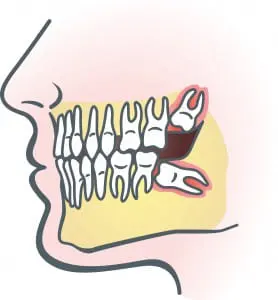Your dentist can perform various in-office procedures to treat any oral health problems you may be experiencing.
- Dental implants. Many patients opt for dental implants to replace missing teeth. A metal post is inserted into the jawbone and fuses with the bone over time. A crown is then placed on top to create a realistic-looking tooth.
- Wisdom teeth removal. Wisdom teeth often come in impacted or improperly aligned, causing pain. These teeth are often removed.
- Jaw surgery. Some people suffer pain and discomfort in their jaw. While sometimes this can be treated with pain relievers and other forms of self-care, surgery may be needed in severe cases.
- Reconstructive surgery. Injuries to the face or mouth may require surgery to fix. A knocked-out tooth, a broken jaw or an incident causing gum damage may require surgery.
- Biopsies. A lesion in your mouth may be oral cancer. Your dentist may remove a small amount of tissue and send it to a lab for analysis. This is called a biopsy.
Before surgery, our Oral Surgeon will provide you with a detailed treatment plan. You will likely be given anesthesia to minimize pain. After surgery, expect a recovery period. In addition, you may be given medications to alleviate pain. If you were given anesthesia, you will need to arrange to have someone drive you home, as you will be groggy and in no condition to drive. You should be given documentation outlining what to do and what not to do after surgery to promote healing. This will vary, depending on the type of surgery you received.






